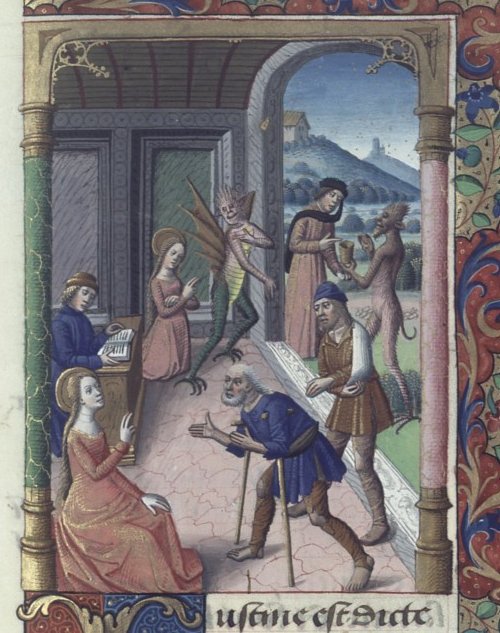
St. Cyprian the Magician
According to Chambers’ Book of Days:
This saint, so surnamed from his having, previous to his conversion, practised the arts of a magician or diviner, has been coupled in the calendar with Justina, a young Syrian lady, regarding whom a young pagan nobleman applied to Cyprian to assist him with his arts in rendering her more favourable to his suit. Justina was a Christian, and opposed, we are told, through the aid of the Virgin, such an effectual resistance to the devices of Cyprian, that the latter was convinced of the weakness of the infernal spirits, and resolved to quit their service. He consulted a priest named Eusebius, who encouraged him in the work of conversion, which he ultimately consummated by burning all his magical books, giving his substance to the poor, and enrolling himself among the Christian catechumens. On the breaking out of the persecution under Dioclesian, Cyprian was apprehended and carried before the Roman governor at Tyre. Justina, who had been the original mover in his change of life, was, at the same time, brought before this judge and cruelly scourged, whilst Cyprian was torn with iron hooks. After this the two martyrs were sent to Nicomedia, to the Emperor Diocletian, who forthwith commanded their heads to be struck off. The history of St. Cyprian and St. Justina was recorded in a Greek poem by the Empress Eudocia, wife of Theodosius the Younger, a work which is now lost.
The two were struck from the saints’ calendar in the papal reforms of 1969, but since that purge also demoted Saint Nicholas we need pay no attention to it.